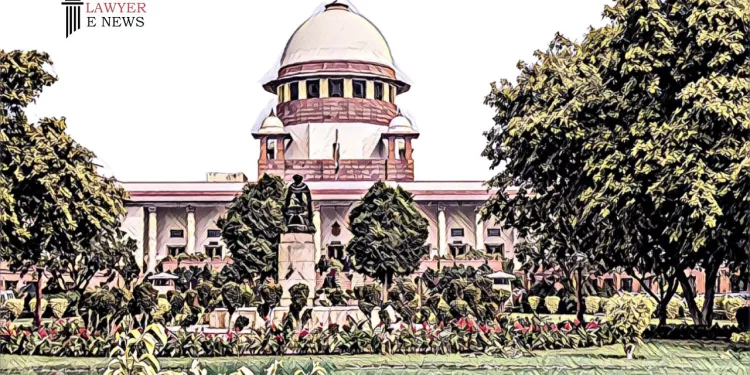Time is of the Essence in Property Sale Agreements: Supreme Court

In a significant judgment that underscores the importance of time in property sale agreements, the Supreme Court today set aside the judgments of the High Court and the First Appellate Court in the Civil Appeal No. 8185 of 2009, involving appellants Alagammal and others against respondents Ganesan and another.
The apex court, led by Justices Vikram Nath and Ahsanuddin Amanullah, reinstated the Trial Court’s decision, which had initially dismissed the suit for specific performance filed by the respondents. This decision marks a pivotal reinforcement of contractual obligations and the essence of time in agreements involving the sale of immovable property.
The case stemmed from an Agreement of Sale in 1990 between the appellants and the respondents, with a stipulated six-month period for the completion of the transaction. The respondents filed a suit in 1998, claiming specific performance after the appellants failed to execute the agreement. The Supreme Court delved into the crux of the matter, focusing on whether the respondents demonstrated readiness and willingness to execute the sale and if time was of the essence in the contract’s performance.
Justice Ahsanuddin Amanullah observed, “Payment of Rs.3,000/- only out of Rs.21,000/- having been made, or at best Rs.7,000/- out of Rs.21,000/-, which is the amount indicated in the Legal Notice sent by the respondents to the appellants, the obvious import would be that the respondents had not complied with their obligation under the Agreement within the six-month period.” This observation highlighted the respondents’ failure to fulfill their contractual obligations within the agreed timeframe.
Furthermore, the Court noted discrepancies in payment endorsements and raised questions about the authenticity of the appellant no.1’s thumb-impression, which was disapproved of by a fingerprint expert. This cast doubt on the validity of the respondents’ claims and their readiness to complete the agreement.
The judgment also brought into focus the issue of limitation and the transfer of possession as an implicit term in the sale of immovable property. “The decree dated 27.04.1996 also remained only a decree on paper without actual possession to appellant no.1,” the Court stated, emphasizing the importance of possession transfer in property sales.
Supreme Court’s decision reinstates the Trial Court’s order, allowing the appeal in favor of the appellants and setting a precedent on the importance of adhering to stipulated timeframes in property sale agreements. This judgment serves as a crucial reminder for parties in property transactions to diligently observe contractual timelines and conditions.
Date of Decision: 10th January 2024
ALAGAMMAL AND ORS.VS GANESAN AND ANR.






